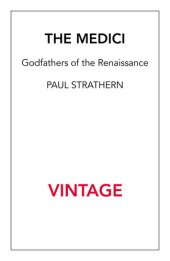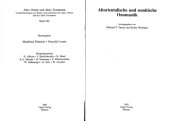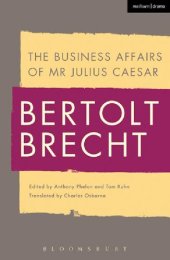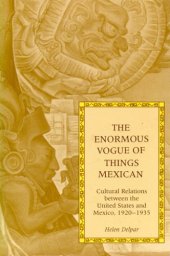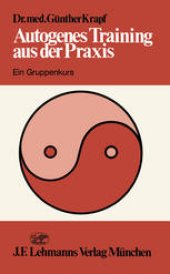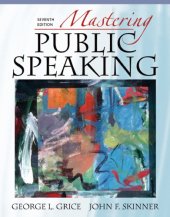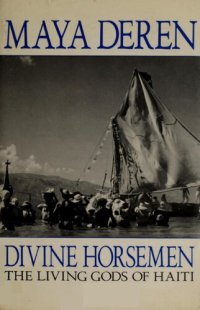
Ebook: Divine Horsemen: The Living Gods of Haiti
Author: Maya Deren
- Genre: Other Social Sciences // Ethnography
- Tags: haiti, voudoun, maya deren, african religion
- Year: 1983
- Publisher: McPherson & Company
- City: Kingston, New York
- Language: English
- pdf
When Maya Deren decided to make an ethnographic film in Haiti, she was criticized for abandoning avant-garde film where she had made her name, but she was ready to expand to a new level as an artist.[31][32] She had studied ethnographic footage by Gregory Bateson in Bali in 1947, and was interested in including it in her next film.[2] In September, she divorced Hammid and left for a nine-month stay in Haiti. The Guggenheim Fellowship grant in 1947 enabled Deren to finance her travel and complete her film Meditation on Violence. She went on three additional trips through 1954 to document and record the rituals of Haitian Vodou.
A source of inspiration for ritual dance was Katherine Dunham who wrote her master's thesis on Haitian dances in 1939, which Deren edited. While working as Dunham's assistant, Deren was given access to Dunham's archive which included 16mm documents on the dances in Trinidad and Haiti. Exposure to these documents led her to write her 1942 essay titled, "Delicious Possession in Dancing."[33] Afterwards, Deren wrote several articles on religious possession in dancing before her first trip to Haiti.[34] Deren filmed, recorded and photographed many hours of Vodou ritual, but she also participated in the ceremonies. She documented her knowledge and experience of Vodou in Divine Horsemen: The Living Gods of Haiti (New York: Vanguard Press, 1953), edited by Joseph Campbell, which is considered a definitive source on the subject. She described her attraction to Vodou possession ceremonies, transformation, dance, play, games and especially ritual came from her strong feeling on the need to decenter our thoughts of self, ego and personality.[7] In her book An Anagram of Ideas on Art, Form, and Film she wrote:
The ritualistic form treats the human being not as the source of the dramatic action, but as a somewhat depersonalized element in a dramatic whole. The intent of such depersonalization is not the destruction of the individual; on the contrary, it enlarges him beyond the personal dimension and frees him from the specializations and confines of personality. He becomes part of a dynamic whole which, like all such creative relationships, in turn, endow its parts with a measure of its larger meaning.[1]
Deren filmed 18,000 feet of Vodou rituals and people she met in Haiti on her Bolex camera.[35] The footage was incorporated into a posthumous documentary film Divine Horsemen: The Living Gods of Haiti, edited and produced in 1977 (with funding from Deren's friend James Merrill) by her ex-husband, Teiji Itō (1935-1982), and his wife Cherel Winett Itō (1947–1999).[36][37][38] All of the original wire recordings, photographs and notes are held in the Maya Deren Collection at the Howard Gotlieb Archival Research Center at Boston University. The film footage is housed at Anthology Film Archives in New York City.
An LP of some of Deren's wire recordings was published by the newly formed Elektra Records in 1953 entitled Voices of Haiti. The cover art for the album was by Teiji Itō.[39]
Anthropologists Melville Herkovitz and Harold Courlander acknowledged the importance of Divine Horsemen, and in contemporary studies it is often cited as an authoritative voice, where Deren's methodology has been especially praised because "Vodou has resisted all orthodoxies, never mistaking surface representations for inner realities."[40]
In her book of the same name[41] Deren uses the spelling Voudoun, explaining: "Voudoun terminology, titles and ceremonies still make use of the original African words and in this book they have been spelled out according to usual English phonetics and so as to render, as closely as possible, the Haitian pronunciation. Most of the songs, sayings and even some of the religious terms, however, are in Creole, which is primarily French in derivation (although it also contains African, Spanish and Indian words). Where the Creole word retains its French meaning, it has been written out so as to indicate both the original French word and the distinctive Creole pronunciation." In her Glossary of Creole Words, Deren includes 'Voudoun' while the Shorter Oxford English Dictionary[42] draws attention to the similar French word, Vaudoux. (Source: https://en.wikipedia.org/wiki/Maya_Deren)
A source of inspiration for ritual dance was Katherine Dunham who wrote her master's thesis on Haitian dances in 1939, which Deren edited. While working as Dunham's assistant, Deren was given access to Dunham's archive which included 16mm documents on the dances in Trinidad and Haiti. Exposure to these documents led her to write her 1942 essay titled, "Delicious Possession in Dancing."[33] Afterwards, Deren wrote several articles on religious possession in dancing before her first trip to Haiti.[34] Deren filmed, recorded and photographed many hours of Vodou ritual, but she also participated in the ceremonies. She documented her knowledge and experience of Vodou in Divine Horsemen: The Living Gods of Haiti (New York: Vanguard Press, 1953), edited by Joseph Campbell, which is considered a definitive source on the subject. She described her attraction to Vodou possession ceremonies, transformation, dance, play, games and especially ritual came from her strong feeling on the need to decenter our thoughts of self, ego and personality.[7] In her book An Anagram of Ideas on Art, Form, and Film she wrote:
The ritualistic form treats the human being not as the source of the dramatic action, but as a somewhat depersonalized element in a dramatic whole. The intent of such depersonalization is not the destruction of the individual; on the contrary, it enlarges him beyond the personal dimension and frees him from the specializations and confines of personality. He becomes part of a dynamic whole which, like all such creative relationships, in turn, endow its parts with a measure of its larger meaning.[1]
Deren filmed 18,000 feet of Vodou rituals and people she met in Haiti on her Bolex camera.[35] The footage was incorporated into a posthumous documentary film Divine Horsemen: The Living Gods of Haiti, edited and produced in 1977 (with funding from Deren's friend James Merrill) by her ex-husband, Teiji Itō (1935-1982), and his wife Cherel Winett Itō (1947–1999).[36][37][38] All of the original wire recordings, photographs and notes are held in the Maya Deren Collection at the Howard Gotlieb Archival Research Center at Boston University. The film footage is housed at Anthology Film Archives in New York City.
An LP of some of Deren's wire recordings was published by the newly formed Elektra Records in 1953 entitled Voices of Haiti. The cover art for the album was by Teiji Itō.[39]
Anthropologists Melville Herkovitz and Harold Courlander acknowledged the importance of Divine Horsemen, and in contemporary studies it is often cited as an authoritative voice, where Deren's methodology has been especially praised because "Vodou has resisted all orthodoxies, never mistaking surface representations for inner realities."[40]
In her book of the same name[41] Deren uses the spelling Voudoun, explaining: "Voudoun terminology, titles and ceremonies still make use of the original African words and in this book they have been spelled out according to usual English phonetics and so as to render, as closely as possible, the Haitian pronunciation. Most of the songs, sayings and even some of the religious terms, however, are in Creole, which is primarily French in derivation (although it also contains African, Spanish and Indian words). Where the Creole word retains its French meaning, it has been written out so as to indicate both the original French word and the distinctive Creole pronunciation." In her Glossary of Creole Words, Deren includes 'Voudoun' while the Shorter Oxford English Dictionary[42] draws attention to the similar French word, Vaudoux. (Source: https://en.wikipedia.org/wiki/Maya_Deren)
Download the book Divine Horsemen: The Living Gods of Haiti for free or read online
Continue reading on any device:

Last viewed books
Related books
{related-news}
Comments (0)

